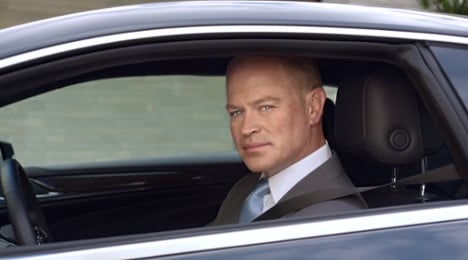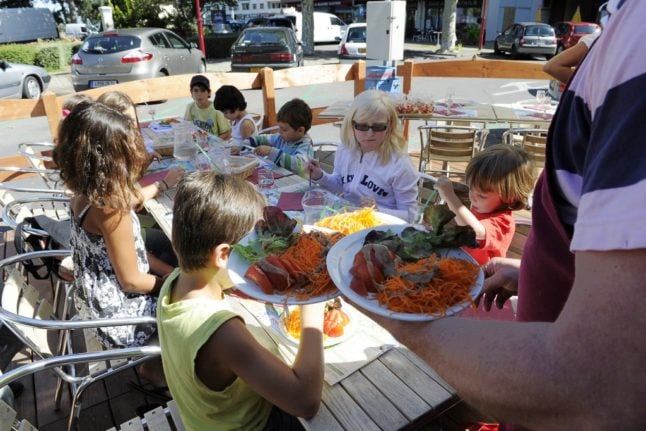It’s fair to say the latest advert for the luxury classic American Cadillac car has not gone down well in France.
The ad, features US actor Neil McDonough, of Desperate Housewives fame, playing the role of a successful American self-made man, boasting about what hard-work and ambition has brought to his country, when compared to “other countries” where workers take “the whole of August off”.
In America “we are crazy driven hard-working believers”, McDonough says, as he dons his pristine suit ready for a day’s hard work, where as in other countries, “they stroll home and stop by the café”.
As McDonough gets into his Cadillac to drive off to work he pays homage to materialism while having a barely disguised dig at the French.
“As for the stuff, that's the upside of taking just two weeks off in August. N'est-ce pas? ” he says.
Needless to say the French media, always sensitive to any form of French bashing, especially when it comes from the other side of the Atlantic, took issue with the ad.
“The lamentable anti-French advert by Cadillac,” was how the website Slate.fr headlined their article.
Writer Marc Naimark wrote, with obvious sarcasm: “Ah yes, these frogs, these cheese-eating surrender monkeys, known for their laziness, the 35-hours a week, the ban on work emails after 6pm, the four weeks spent sunbathing among the shellfish in August. What a difference to the Yankee workers, who relish spending their time doing everything, except nothing.”
The Nouvel Obs magazine wrote: “The latest advert for the luxury brand leads us to believe the French are lazy, spending their time relishing their paid holidays. Charming.”
Neither did the video go down well among The Local's readers.
@TheLocalFrance @TheLocalSweden Caddilac's share of the U.S. luxury car market is shrinking for many reasons, stupid ads are a small one
— ed sanders (@e_d_sanders) April 14, 2014
@TheLocalFrance For what it's worth, as an American, I find the concept 'I should slave away for the sake of possessions' equally insulting
— James (@Questingrat) April 14, 2014
Although some suggested that the French media's reaction to the ad was more a case off the truth hurts.
@TheLocalFrance @TheLocalSweden you know what they say, you don't take offense unless there is some truth in the accusation posed
— Ludvig Hambraeus (@ludvigeh) April 14, 2014
Opinions were divided among those commenting on Facebook.

Here’s the ad. Judge it for yourself. And since the ad came out US car giant Ford, a rival to General Motors which owns Cadillac, decided to hit back with their own advert. It's certainly worth watching too. See below.
And now for the Ford version:



 Please whitelist us to continue reading.
Please whitelist us to continue reading.
Member comments